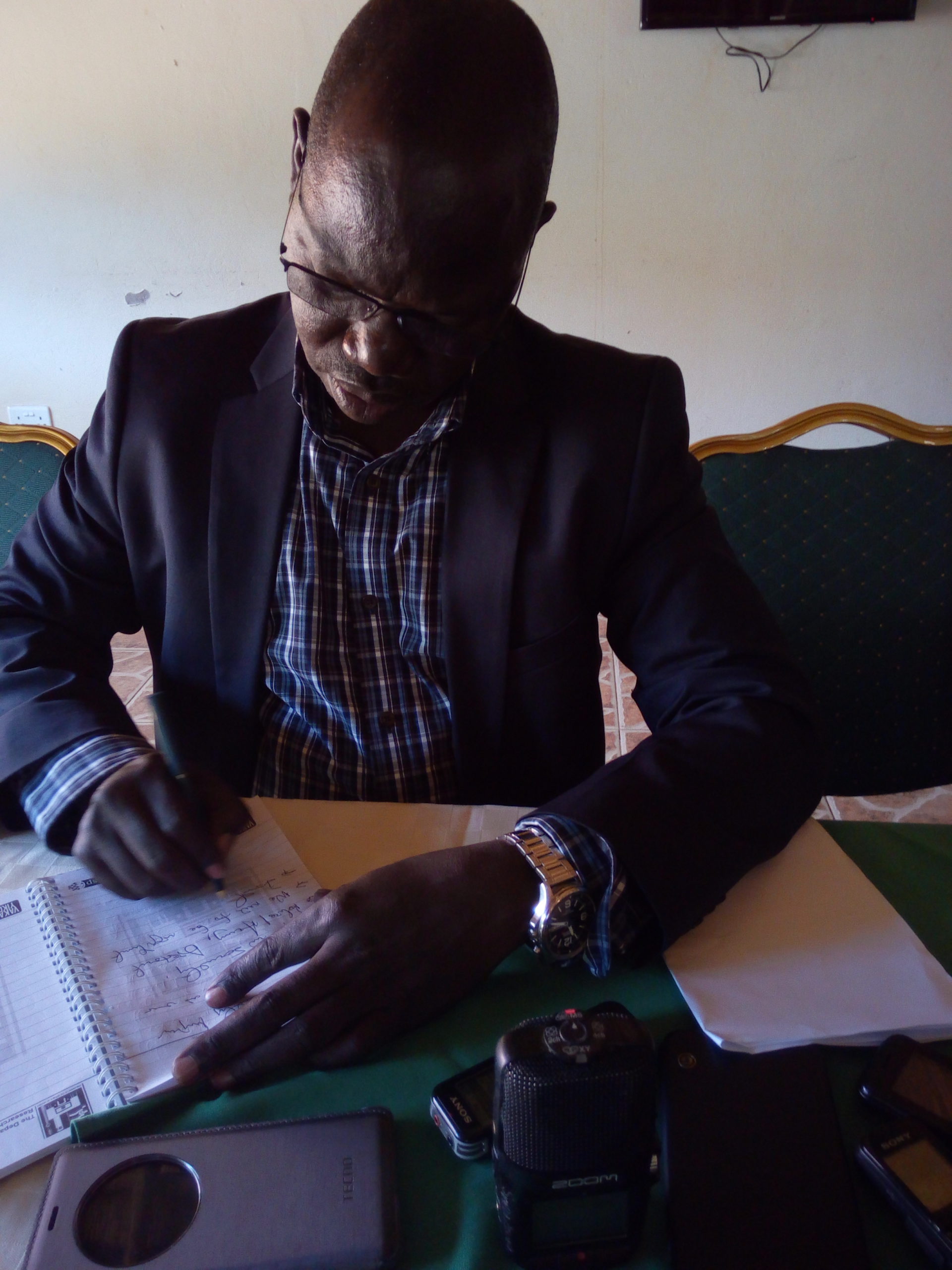Member of Parliament for Gulu Municipality, Mr. Lyandro Komakech, addressing the media in Gulu recently.
“The ICC left behind gaps between 1986 and June 30, 2002, the time when the court became operational. When referrals were made to the ICC, they were made from the period of July 1, 2002. What about the period when the ICC was not yet there? That means the impunity gap needs to be analyzed”.
GULU-UGANDA: The United Nations’ Security Council should set up an “International Tribunal for Uganda” for the conflicts that took place in Northern Uganda to try cases of atrocities that were committed before the International Criminal Court (ICC) was established.
“The ICC left behind gaps between 1986 and June 30, 2002, the time when the court became operational. When referrals were made to the ICC, they were made from the period of July 1, 2002. What about the period when the ICC was not yet there? That means the impunity gap needs to be analyzed”, says Lyandro Komakech, Member of Parliament for Gulu Municipality.
He made the remarks on Tuesday, November 29, 2016, during a press briefing in Gulu town.
He singled out a Uganda Peoples’ Defense Forces (UPDF) General David Sejusa formerly called Gen. Tinyefunza, who kept complete “news blackout” of northern Uganda during his “Operation North” military operation in 1992. Scores were killed, arrested and detained, especially local leaders during that operation.
“What do we do with that period when Tinyefunza locked out northern Uganda in 1992? That period has not been sorted out. There is need to establish a separate “International Tribunal for Uganda”, similar to that of Rwanda and former Yugoslavia”, says the legislator.
Mr. Komakech said the government must come up with a National Transitional Justice policy to bring on board the aspect of accountability, transitional justice and reparation challenges since most victims of the conflict has not been benefitting from.
“We should bring on board the aspect of accountability, transitional justice and reparation, which has been the core challenges that today, the victims that underwent this period of conflict haven’t been benefitting”, says Mr. Komakech.
He called upon government to hurry up with the draft of the “national transitional justice policy” to enable parliament pass the proposed “national reconciliation law” to put in operation the policy.
“There are gaps which we need to fill. Government should own the process. Policy must move together with law that it requires. Uganda has been a divided country and, we in northern Uganda, have been divided”, says the legislator.
This assertion was also collaborated by the First Deputy Prime Minister of Uganda, Gen Moses Ali, who decried the breaking up of the greater northern Uganda, which comprised of West Nile, Acholi, Lango and Karamoja, into different political sub-regions, which has destroyed the former unity.
Gen. Ali, who hails from neighboring Adjumani district in West Nile sub-region, was speaking as chief mourner at the burial service for an Acholi entrepreneur the late Vincent Opiyo-Lukone on Wednesday, November 30, 2016, in the new Omoro district.
“We should stop killing one another as Ugandans. We used to be one entity in Northern Uganda, but look at how we have been divided today. We need to reconcile, first as northerners, then with the rest of Uganda”, says Gen Ali.
MP Komakech says the source of Uganda conflicts started way back in 1900 when Katikiro of Buganda, Sir Apollo Kagwa signed (B)Uganda Agreement on behalf of infant Kabaka Daudi Chwa and Sir Harry Johnstone on behalf of the colonial government, which gave away half of Buganda land to the Queen of England The remaining half of Buganda land was given to chiefs who collaborated with the colonial chiefs.
“When Sir Harry Johnstone was writing his report to be discussed in the British parliament, he miss-spelt “Buganda Agreement” and wrote it as “Uganda Uganda” bringing on board all the regions of Uganda. It became the first constitution by annexing other regions. The name Uganda is questionable. What is the meaning of Uganda”? Says Mr. Komakech
He said the current wave of insecurity in Northern Uganda is sending wrong signals to prospecting tourists who may want to visit Uganda just to enjoy our rich food and culture, watch birds and wildlife.
“As Acholi Parliamentary Group, our position is one: Nobody should come in and impose insecurity in our sub-region. We have those conflict entrepreneurs who are very jealous on the way the community here are recovering in terms of their resilience from the war and would like to see us back to where we were. This is not political but survival”, says Komakech.












